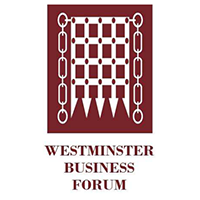›Next steps for the UK space sector - regulation, commercialisation and international partnerships
This conference will examine key developments, policy priorities and next steps for the UK space sector.
The discussion is bringing stakeholders together with key policy officials who are due to attend from BEIS; the Cabinet Office; the UK Space Agency; the European Space Agency; the MOD; Defence Airspace and Air Traffic Management; DIT; DCMS; Ofcom; Defra; the Home Office; the Government Legal Department; and the Welsh Government.
Agenda
- The development and regulation of commercial spaceflight in the UK
- Commercialising the UK’s space sector - the Artemis programme, spaceport development and spaceflight regulation
- Developing and utilising funding for UK spaceports
- The future regulatory framework for the sector
- Progress with plans for UK spaceflight
- Plans for commercial flights in the UK
- Space flight operations and manufacturing
- Strengthening international partnerships and cooperation
- Opportunities for growth, innovation and utilising funding
- Collaboration between government and industry to achieve growth in the sector
- Developing the skills and workforce to meet sector needs
- The role that the UK space sector can play in earth observation and combatting climate change
- Improving telecommunications and connectivity
- Defence, space and the MOD’s role as a customer to the industry
- Next steps for the UK’s space sector
Areas for discussion
- sector development - addressing the skills gap, access to finance and efficient use of government funding, and priorities for the regulatory framework
- spaceflight regulation - establishing commercial vertical and horizontal small satellite launch, sub-orbital space flight and space tourism from UK spaceports
- the National Space Council - priorities for its role in joining up policy in areas such as security, international partnerships and governance
- spaceports - next steps for development and assessing the impact of the US-UK Technology Safeguards Agreement and next steps
- innovation - including the impact of the National Space Innovation Programme the way forward for projects in Earth observation and communications, what it means for international partnerships
- insurance and liabilities:
- the Unlocking commercial spaceflight for the UK consultation - on proposed liabilities, insurance and charging requirements in line with the Space Industry Act 2018
- Government Actuary’s Department work on setting insurance requirements and providing risk analysis for this new frontier for the spaceflight launch industry in the UK
- the Artemis Programme:
- the opportunity - what the UK’s role in the mission means for long term collaboration with NASA missions, and the UK’s wider international positioning in space sector development
- partnership development - strategies and priorities for how collaboration works, including IP and data sharing, use of resources, and safe operations
- best practice - discussing the Artemis Accords and concerns raised over national partner priorities in the programme, looking to the far future and potential commercial interests in space in areas such as extraction of resources and compliance with the Outer Space Treaty
- wider global partnerships:
- the National Space Innovation Programme - and the way forward for international space collaboration projects between industry, academia and research
- global challenges - the UK space sector’s role in areas such disaster relief, tackling human trafficking and epidemics, reducing space debris, and responding to climate change
- Europe and other key international space clusters - options for both ensuring UK companies can expand into other markets and are able to attract international investment and talent
- UK satellite navigation and timing capability - the way forward as the UK’s Global Navigation Satellite System (UK GNSS) Programme concludes including:
- the future capability of the system for energy networks and communications, as well as for maritime, aviation and defence
- ways to deliver satellite navigation services including using satellites at different orbits
- the impact on the domestic space industry
- defence - priorities for the UK space defence strategy and tackling emerging space-based threats to commercial and military satellites, and the role that the MoD and other government and public bodies can play as anchor customers
Policy officials attending
Our forums are known for attracting strong interest from policymakers and stakeholders. Places have been reserved by the BEIS; the Cabinet Office; the UK Space Agency; the European Space Agency; the Ministry of Defence; Defence Airspace and Air Traffic Management; the Department for International Trade; the Government Legal Department; DCMS; Defra; the Home Office; Ofcom; and the Welsh Government.
This is a full-scale conference taking place online
- full, four-hour programme including comfort breaks - you’ll also get a full recording to refer back to
- information-rich discussion involving key policymakers and stakeholders
- conference materials provided in advance, including speaker biographies
- speakers presenting via webcam, accompanied by slides if they wish, using the Cisco WebEx professional online conference platform (easy for delegates - we’ll provide full details)
- opportunities for live delegate questions and comments with all speakers
- a recording of the addresses, all slides cleared by speakers, and further materials, is made available to all delegates afterwards as a permanent record of the proceedings
- delegates are able to add their own written comments and articles following the conference, to be distributed to all attendees and more widely
- networking too - there will be opportunities for delegates to e-meet and interact - we’ll tell you how!
Track this event on your Apple calendar














 Online
Online